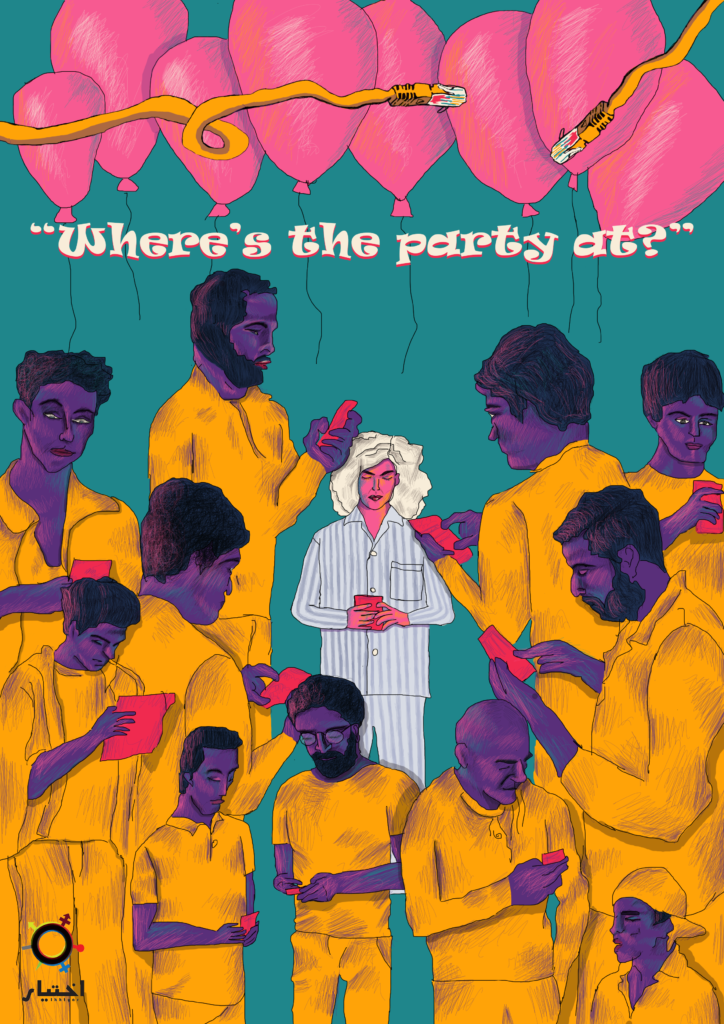Where’s the party at? (PDF)
20-1-2020
Research|Ikhtyar African Feminist Collective
Ikhtyar’s Introduction:
Ikhtyar African Feminist Collective officially joined the global feminist internet movement toward the end of 2017. Our aim was to forge a widely accessible path for Arabic-speaking feminists to join forces and support internet freedoms from an intersectional feminist standpoint.
As one of the conversation starters regionally in North Africa, Ikhtyar partnered with the Association for Progressive Communication (APC) through its Women’s Rights program to conduct a piece of research.
Through this research, Ikhtyar takes a closer look at el-hafla — a term meaning “party” that is used in Egyptian slang term to refer to an online trolling practice. The drive behind this research endeavor is to understand how el-hafla is used to undermine feminist discourses online in the Egyptian context.
The research team chose el-hafla in particular as it manifests different forms of online gender-based violence, such as trolling and online shaming, carried out by more than one online user to shame and discredit outspoken women online.
The study looks at harmful social norms perpetuating gender-based violence online to help understand and analyze internet cultures. It does not seek to be comprehensive with regard to the complexities of women’s realities. Rather, this research forms an essential step in Ikhtyar’s feminist organizing online, with a keen invitation for its community and interested Arabic-speaking feminist groups and collectives to join.
The research revisits a brief history of blogging in Egypt, followed by a contrasting glimpse of what it means to be online in Egypt today. Ikhtyar intentionally resourced women’s experiences to guide our understanding of el-hafla and the mapping of potential strategies to challenge the practice. The research team interviewed eight outspoken feminist Egyptian women to document and analyze their online presence, their understanding of el-hafla, as well as their tools and mechanisms to deal with and survive haflas. We also explored whether their experiences with el-hafla influenced their online activity and expression.
The research is followed by an annex including the interview questions, a glossary defining certain terms used by the team and an outline of the quantitative data scraped from Twitter.

